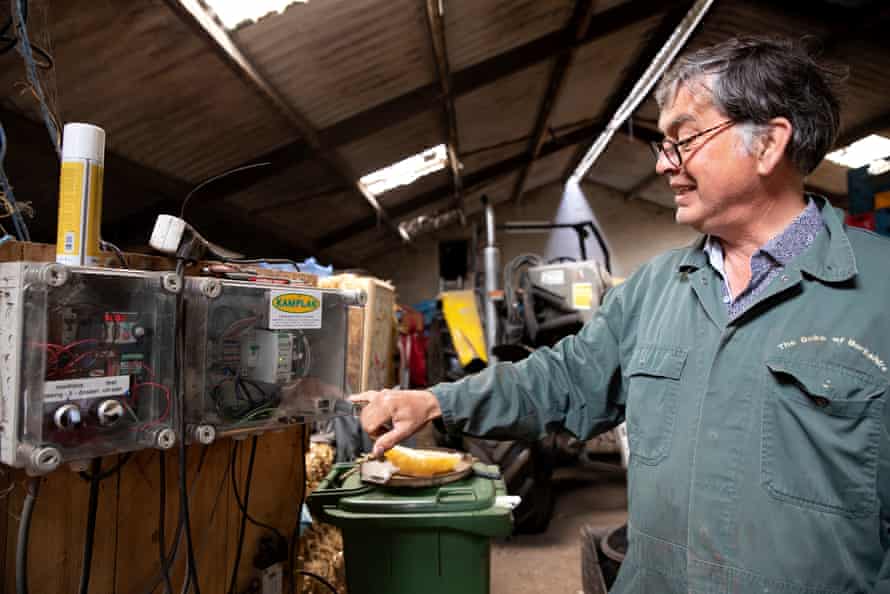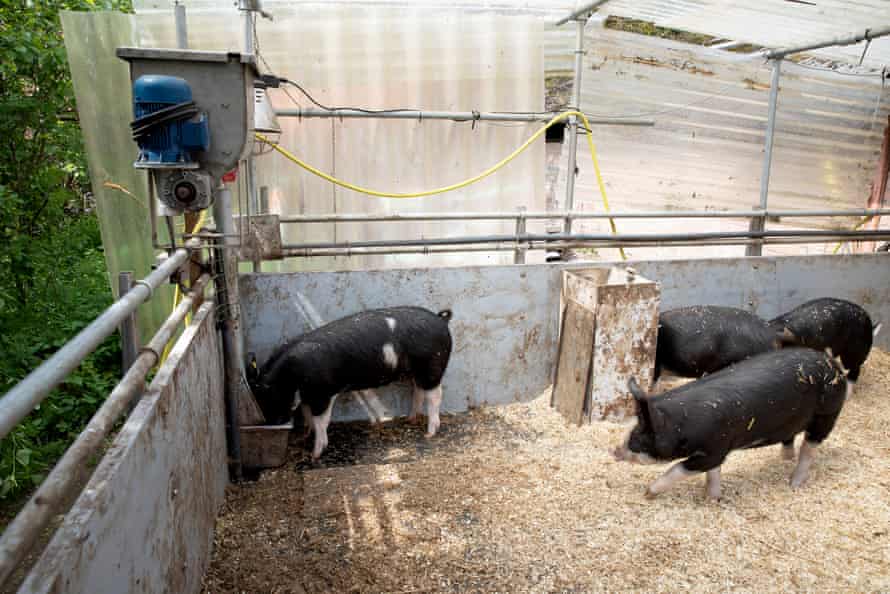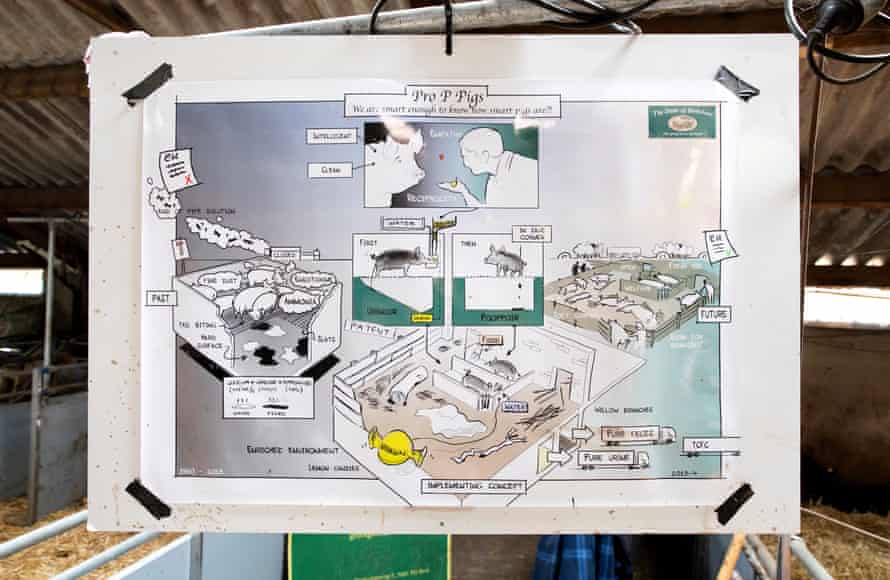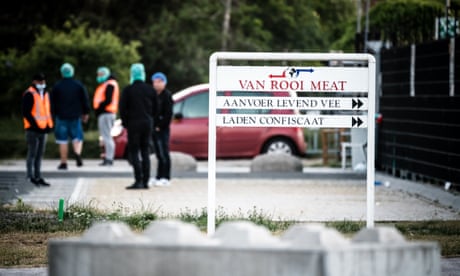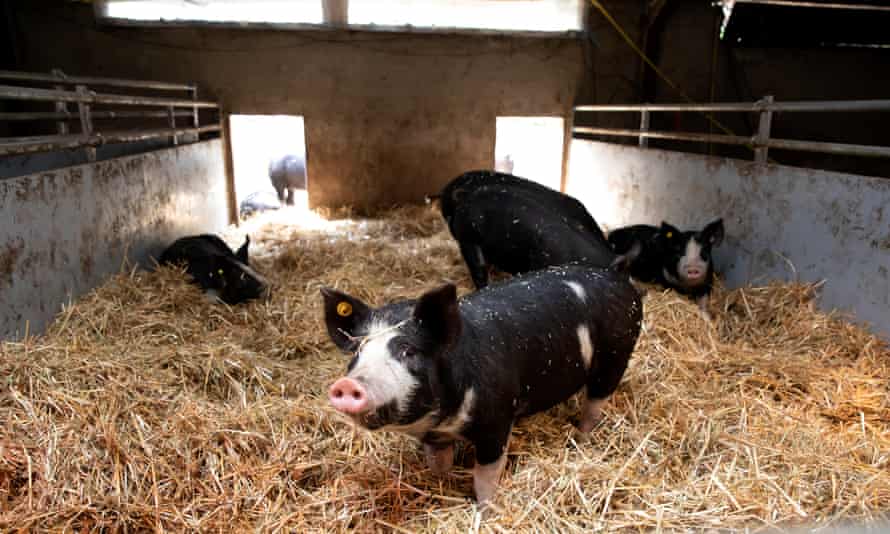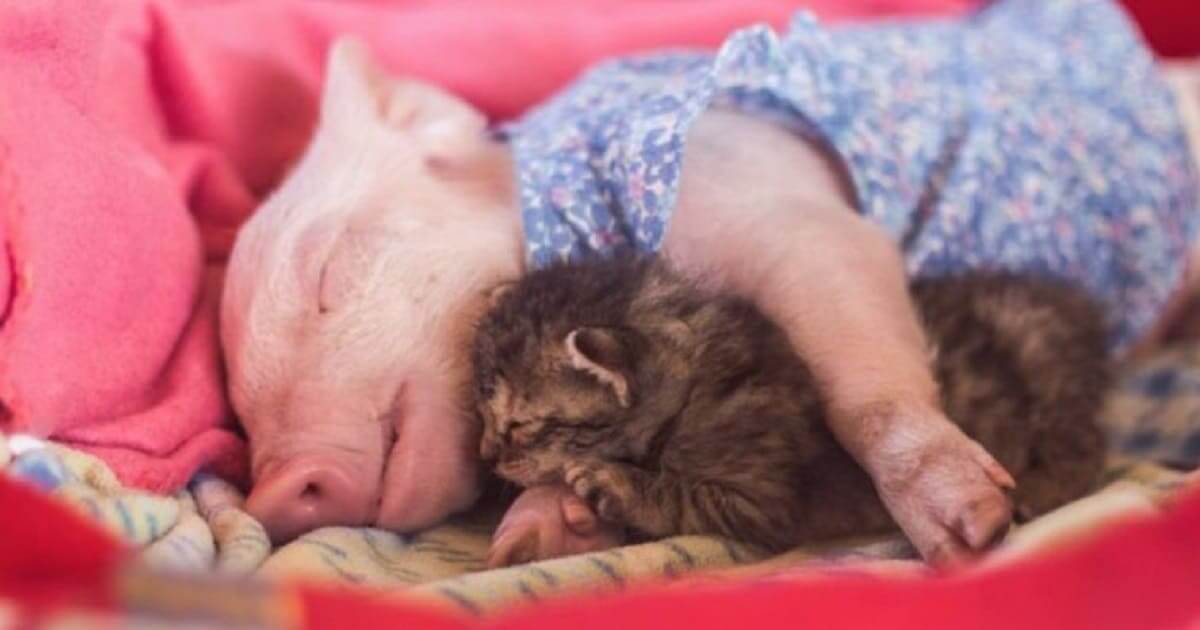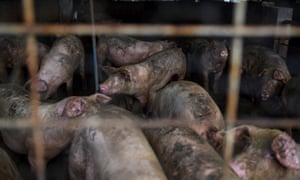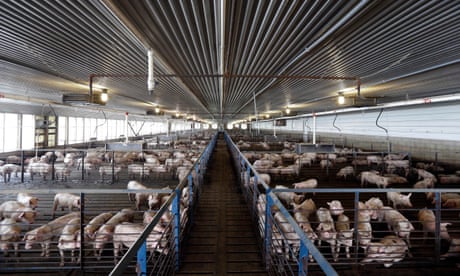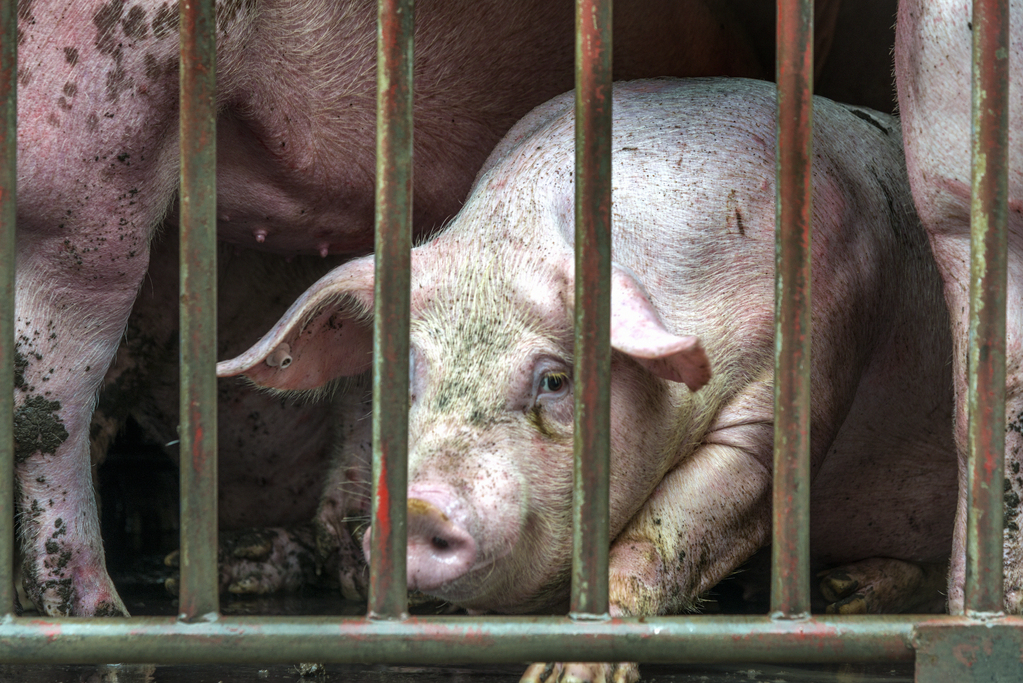By Jon WellsSpectator Reporter
Sun., Aug. 2, 2020timer12 min. read
On her last evening alive, on the cusp of summer, Regan Russell sat in her backyard under a towering maple worthy of the Garden of Eden.
This was off Locke Street South, around the corner from St. John the Evangelist church, where as a girl she had asked the minister if animals had souls, and why they were sacrificed to God in the Bible.
Russell felt a weariness, and also foreboding, at what lay ahead.
She planned to attend her latest animal rights protest the next morning, June 19, outside Fearmans Pork on Harvester Road in Burlington.
Activists call the weekly demonstrations “vigils,” at which they “bear witness” to pigs hauled in trucks for slaughter, talk to the animals through gaps in the ventilated trailers, and squirt water into their mouths, as drivers pause before entering the facility.
She felt despair about a law passed two days earlier in the Ontario legislature — Bill 156 — that she knew would make it harder, even dangerous, to fulfil her calling to advocate for the pigs’ living conditions and work toward stopping the killing of animals altogether.
In her backyard, Russell, who had recently turned 65, sipped a glass of wine and talked with her spouse Mark Powell.
She had been active in animal rights for 40 years.
YOU MIGHT BE INTERESTED IN…
She cared for rabbits, raccoons and wounded squirrels; she protested at Marineland in Niagara and a sled dog breeding operation in Quebec.
She pushed the envelope in her activism and was arrested nearly a dozen times.
“Maybe it’s time for you to pass the torch to the younger generation,” Powell told her. “We can still support them any way we can.”
He was worried for her safety more than usual.
But he also knew there was no stopping her. All he could do was say his piece.
The next afternoon, a woman stood at his door.
“There’s been an accident,” she said, tears in her eyes.
“Slaughterhouse,” Powell said.
“Yes.”
“It’s not good, is it?”
“No.”
One of the trucks carrying pigs had hit and killed Russell.
Her body had been taken to hospital for an autopsy.
The ripple effect of her death was about to be felt far beyond Hamilton.
The 28-year-old driver of the truck has been charged with careless driving causing death by Halton Regional Police under Ontario’s Highway Traffic Act, and police say “there were no grounds to indicate this was an intentional act.” But questions remain about exactly what happened that morning.
The answer to the deeper question of why Regan Russell took her final breath standing athwart a truck loaded with farm animals, moments from their inevitable end, is both simple and complicated.
The notion that farm animals like pigs are sentient — that they feel pain, at least as acutely as a dog, cat or an infant child — is the philosophical bedrock on which activists stand.
And it’s not mere faith, suggests University of Guelph behavioural biologist Georgia Mason.
“Pigs are considered sentient by the European Union and the National Academy of Science, and every animal welfare research group in the world,” she says.
The Ontario Federation of Agriculture recently issued a statement questioning animal sentience, adding: “We simply don’t know if animals are capable of reasoning and cognitive thought.”
But cognition — the ability to understand and acquire knowledge — is distinct from the ability to feel, and it’s a red herring to raise it, Mason says.
“Most recognize that animals are sentient, and it’s not the same as saying they have cognition like humans. It just means they have feelings.”
She says the issue of sentience is more controversial when considering animals such as reptiles, fish, and mammals in a developmental stage — including humans.
“There are questions about at what point a fetus becomes sentient.”
The belief that animals deserve rights in line with humans was popularized 45 years ago in the book “Animal Liberation” by Australian philosopher Peter Singer.
He argued that if one accepts that unequal treatment between humans due to differences in race, gender or intelligence is immoral, then so too is poor treatment of animals, who are physically different from people, but “morally equal.”
It would be “speciesism” to think otherwise, he wrote, and: “We have to speak up on behalf of those who cannot speak for themselves.”
Regan Russell read the book in her early 20s. Its message found a hungry mind and open heart.
And then, in 1977, she read about the seal hunt in the Gulf of St. Lawrence, that had attracted international attention including a visit from French film star Brigitte Bardot, who condemned “Canadian assassins” clubbing the animals.
Russell had always loved animals but now the spark was lit.
She was living in Winnipeg at the time and made a sign and stood on a street corner.
“I thought, I’ll make a sign and protest and it will all stop,” she said to a journalist in a documentary. “I thought, when everyone knows, how could it possibly continue?”
Russell was idealistic, driven, and just getting started.
She grew up in west Hamilton in the 1960s. Bill and Pat Russell named their first of two children after one of the daughters in Shakespeare’s “King Lear” — a rare name for a girl then.
Bill, a music teacher at Regan’s elementary school, took a political science degree at McMaster University on the side, during the ascendance of feminism and civil rights.
There was always lots of conversation around the dinner table.
Regan read on subjects from Socrates to Gandhi and Roman history, but did not attend college or university after graduating from Westdale high school.
She married at 19, and when her husband’s job took him out west, she followed, and worked modelling for Eaton’s. (She refused to model fur, and was ultimately arrested at a fur protest in a department store in Toronto, along with her father.)
The “Animal Liberation” book is a gateway for many activists; a “moral shock” according to Emily Gaarder, an anthropologist at the University of Minnesota-Duluth, who wrote a book about the predominance of women in the animal rights movement.
But, she adds, there are other influences, as well.
Russell married twice before meeting Mark Powell in 2001. They knew each other as kids; she was six years older and had taught him Sunday school at church.
She chose to never have children. Powell says she talked of her fear that she would never develop a strong enough connection with a child.
Instead, he says, she directed her nurturing instinct toward animals.
One of Powell’s two sons from his first marriage called Russell, his stepmother, “Snow White,” after watching her talking to animals.
Ideology is another influence on activists. Gaarder says women emboldened to vigorously advance their cause are “political thinkers making political choices.”
That was true for Anita Krajnc, who joined Russell at many animal rights protests.
Krajnc earned several university degrees including a doctorate in political science.
Into her 20s, Krajnc says she was still a meat eater who “salivated at pig roasts.” She converted to veganism after reading “The Sexual Politics of Meat,” but an incident in her early 40s flipped a switch to her calling.
She lived near a slaughterhouse in Toronto and one day, walking her dog, she came across pigs on a truck. Later that year, she helped found Toronto Pig Save.
“I never took action until I saw the pigs,” she says. “I couldn’t believe how scared and sad they were. It looked like they were in a dungeon. A pig looked at me, and I promised him three vigils a week. And we kept that promise.”
In 2015, Krajnc was charged with criminal mischief for giving water to pigs. She was found not guilty, with Regan Russell offering moral support in the courtroom.
The pair campaigned against Bill 156, the Security from Trespass and Protecting Food Safety Act. Activists believe it is a draconian “ag-gag” measure that will prevent them from exposing inhumane animal treatment.
While the vigils at Fearmans are held just outside the property, at other times, including last summer, Russell and fellow activists entered the grounds to give water to pigs, as workers yelled at them to leave.
In other incidents in Ontario, members of the group “Direct Action Everywhere” have broken into animal breeding barns to retrieve ducks and pigs.
Supporters of the bill say that when activists give water to pigs or trespass on private property, it creates dangerous situations for workers and farmers and is potentially harmful to the food supply.
newsletter.
Sign Up Now
Ernie Hardeman, Ontario’s minister of agriculture, told The Spectator the bill will not prohibit demonstrations, “but it will be illegal to interact with livestock. It’s dangerous when they put things in the trucks, whether it is water or something else.”
He says the bill won’t prevent whistle-blowing, and if anyone at a farm or meat processing plant “sees something inappropriate, we want it reported. I have no tolerance for animal cruelty.”
Activists believe that not only are pigs and other animals mistreated prior to killing, but that eating meat is wrong.
Camille Labchuk, executive director of Animal Justice, says the food system needs to “undergo a massive shift away from eating animals and toward eating plants, to spare billions of animals from unimaginable suffering, to tackle the climate crisis, and because eating animals is a serious risk to public health.”
In an email to The Spectator, she added: “Most people are shocked to learn animal welfare on farms is almost completely unregulated in Canada, and the government doesn’t inspect or monitor the conditions the animals like pigs are kept in … The industry gets to police itself; the figurative fox is guarding the literal henhouse.”
“That is an inaccurate statement,” counters Cameron Newbigging, a spokesperson with Agriculture and Agri-Food Canada, who says the Canadian Food Inspection Agency enforces regulations for the humane transport and slaughter of animals, and “provincial inspectors go onto farms where irregularities are suspected or complaints are received.”
What constitutes humane treatment is spelled out in Ontario’s Provincial Animal Welfare Services Act passed in 2019, and the federal Health of Animals Act.
One example is regulations for herding animals. Activists lament the use of electric prods to force pigs off trucks; the regulations say prods are permitted on pigs at least three months old, so long as “it is not applied to a sensitive area including the belly and the anal, genital and facial regions of the animal.”
Another regulation is that pigs and other animals cannot be trucked when the shipping time is longer than 12 hours.
Sofina Foods, owner of Fearmans Pork since 2012, said in a statement to The Spectator that its pigs come from farms within a three-hour radius of the plant, “well below the travel time permitted and recommended by regulators.”
For Regan Russell and other activists, the point of opposing Bill 156 was to ensure they remain free to comfort farm animals, and keep a close eye on transport and killing techniques in the industry.
On her Facebook page on June 18, Russell called the bill “evil.”
The protest on June 19 was different than the routine vigils. In addition to bearing witness, it was intended to draw attention to the bill.
That morning, just after 10 a.m., one of the trucks hauling pigs stopped on Harvester Road before it reached the gates of Fearmans.
Activists waited on the sidewalk for their chance to give water to the pigs.
Enforcement under the new law had not yet come into effect; they could still interact with the animals as usual.
Activists say that in the past, drivers have mostly co-operated with the vigils, but occasionally have confronted protesters.
Krajnc, who was not present that day, says she was told by witnesses the truck idled further away from activists than usual, disrupting traffic, “and creating a sense of chaos.”
At the same time, she said, Russell stood apart from the others, in the driveway closer to the gates of the property, and at some point the truck started to move again.
A news release from Pig Save Toronto says Russell “tried to jump from the path of the truck before it plowed into her.” Halton police said in a news release that it was not an “intentional act.”
A video documentary about Russell, posted on the Pig Save Facebook page, says she was hit and dragged by the truck and her body mangled underneath.
“One of our activists has been killed,” says a man filming the aftermath on his phone. “Jesus Christ. It finally f—ing happened.”
Within days, animal rights activists held tributes in Russell’s honour, from Argentina to the U.K. and Italy, and in Germany, where protesters hung a banner on a slaughterhouse in Berlin bearing Russell’s likeness.
In Los Angeles, actor Joaquin Phoenix held a sign at a rally that read “Save Pigs 4 Regan,” and said in a statement: “Regan Russell spent the final moments of her life providing comfort to pigs who had never experienced the touch of a kind hand.”
PETA (People for the Ethical Treatment of Animals) announced it had acquired two six-week old pigs from a farm in Iowa, and took the rare step of naming them after an activist: One is named Regan and the other, Russell. They will live in an animal sanctuary in upstate New York.
A march was held in Toronto, where activists called on the province to implement “Regan’s Law,” a bill of rights to protect farm animals.
Powell was among the speakers.
“It is a horrible, life-changing tragedy, for everyone she knew and touched,” he says.
One of her oldest friends, Katherine Wightman, who Russell met through modelling in Winnipeg, says Regan used to talk about being ready to die for her cause.
“She died a martyr,” says Wightman. “She could have worked until she was 100 and never accomplished what this tragic death has.”
Russell’s death has become one of those moral shocks: her face a symbol, her alliterative name a rally cry.
At a pig vigil held three weeks after the incident, flowers from a tribute to her remained hanging on a fence outside Fearmans, having wilted and dried in the heat.
About 18 activists were there, and for some it was their first time.
Nancy Robertson drove 40 minutes from Cambridge where she works as a nurse, wearing a shirt with Russell’s likeness on it.
“(Russell) opened my eyes to doing more for the animals, being in public, having a united front and speaking up for them … Seeing the animals in distress deeply affected me. I’ve never seen one up close before. We would never treat a dog or cat or human that way.”
Jessie Watkinson drove an hour to attend, also inspired by Russell. She cried after offering water to the pigs.
“They were too hot and exhausted to even drink. You connect with one, they look at you, and in that two minutes you show them the compassion. I just wish we could do more.”
At her final protest, Russell had taken her turn spraying water into the mouths of the pigs. And she held a sign that read: “The truth should never be illegal.”
After she was killed, pigs in the truck that hit her were herded onto another, while police officers investigated.
There had been so much commotion in the moment: blood, sirens, and screams from an activist recorded on a phone: “No! No!”
If what Regan Russell believed to her core is true, that pigs feel and have perception beyond our understanding, then it was not just the humans who felt it deeply that morning: that something gentle and beautiful had been lost, on the road to slaughter.
Jon Wells is a Hamilton-based reporter and feature writer for The Spectator. Reach him via email: jwells@thespec.com
The idealistic life and violent death of Hamilton animal rights champion Regan Russell
https://www.thestar.com/news/insight/2020/08/02/the-idealistic-life-and-violent-death-of-hamilton-animal-rights-champion-regan-russell.html?utm_campaign_id=


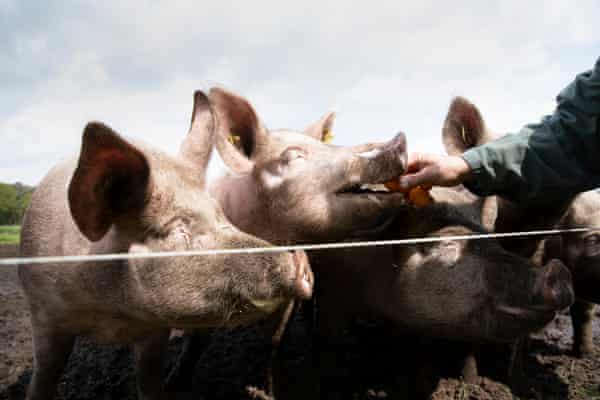





 Climate crisis to shrink G7economies twice as much asCovid‑19, says researchhttps://imasdk.googleapis.com/js/core/bridge3.463.0_en.html#goog_887211358https://imasdk.googleapis.com/js/core/bridge3.463.0_en.html#goog_223764651https://imasdk.googleapis.com/js/core/bridge3.463.0_en.html#goog_1184734078
Climate crisis to shrink G7economies twice as much asCovid‑19, says researchhttps://imasdk.googleapis.com/js/core/bridge3.463.0_en.html#goog_887211358https://imasdk.googleapis.com/js/core/bridge3.463.0_en.html#goog_223764651https://imasdk.googleapis.com/js/core/bridge3.463.0_en.html#goog_1184734078
